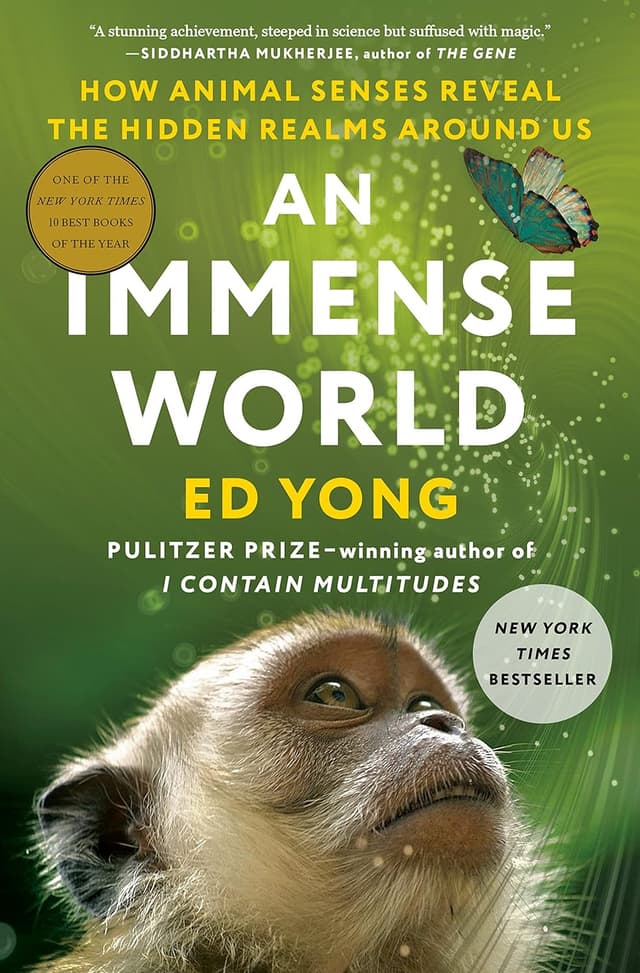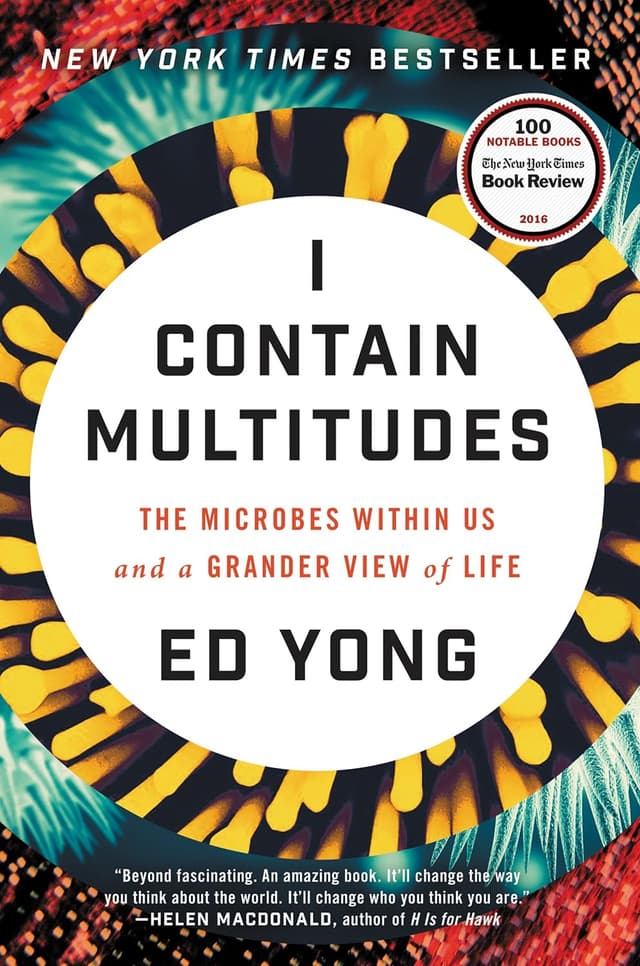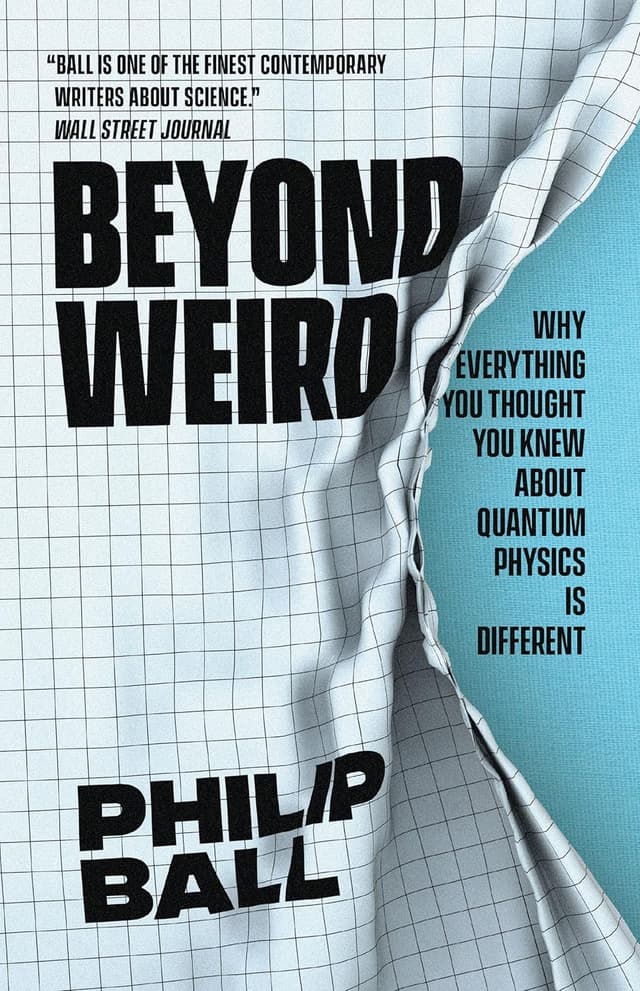Noah Brier | July 26, 2022
The Language Limits Edition
On biology, physics, and the places where words fail us
Recommended Products

A new book by Ed Yong, discussing the animal senses and what they reveal.

Ed Yong's first book, exploring bacteria and the microbiome.

Phillip Ball's book about the counterintuitive nature of quantum physics.
Noah here. There are a bunch of really wonderful bits in this interview between Alice Wong and Ed Yong about Yong’s new book, An Immense World. Yong is easily one of the best science writers in the business. His COVID coverage for The Atlantic throughout the pandemic was amazing, and his first book, I Contain Multitudes, was an excellent exploration of bacteria and the microbiome.
One of Yong’s replies on the limits of language particularly stood out for me:
There is a profound language problem. On the one hand, language is a wonderful tool. It allows us to describe these other worlds in metaphors that help us think and imagine them. But there are many places where our language leaves us in the lurch. Like with vision, we don’t have a word for detecting light but not having a conscious experience of it. Photo reception is sort of there, but seeing is used for all sorts of different things that really run the spectrum. And the problem is even worse when you think about senses like smell, where most Western cultures, at least, have a very impoverished vocabulary. Or when you think about electric senses, about fish talking with their own electric messages—the language of electricity is just sort of weird and abstract and cold. You have to talk about things like voltage and current and potential. There’s none of the words that we would use to describe tastes or sounds, none of that sort of rich lexicon, and that’s a problem. When we don’t have the words or when our words are overly broad, we run into misconceptions.
Why is this interesting?
I ran into a similar sentiment from another science writer that has stuck in my head. In Phillip Ball’s book about quantum physics, Beyond Weird, he also highlights the way language limits our understanding.
It’s not so much understanding or even intuition that quantum mechanics defies, but our sense of logic itself. Sure, it’s hard to intuit what it means for objects to travel along two paths at once, or to have their properties partly situated some place other than the object itself, and so on. But these are just attempts to express in everyday words a state of affairs that defeats the capabilities of language. Our language is designed to reflect the logic we’re familiar with, but that logic won’t work for quantum mechanics.
It’s not just language, as Ball points out, but our understanding of logic that is built around the expectations of a macro Newtonian world. Or, as Yong suggests, a world that is fundamentally human-centric. In both cases, there are many layers of ideas—language being one of them—that we all rely on to navigate things, but are fundamentally built from our unique point of view. We are sometimes able to find our way around the lack of understanding by using analogies, as Yong highlights with voltage and current, but ultimately that becomes another layer standing between us and true understanding. (NRB)
—
WITI x McKinsey:
An ongoing partnership where we highlight interesting McKinsey research, writing, and data.
Space Junk—it’s out of this world. Rockets, satellites, moonwalks, and more: let’s explore space in this edition of McKinsey for Kids. Find your flight suit and buckle up for a closer look at the future of space and how people are trying to deal with the stratospheric equivalent of your family’s junk drawer.
—
Thanks for reading,
Noah (NRB) & Colin (CJN)
Why is this interesting? is a daily email from Noah Brier & Colin Nagy (and friends!) about interesting things. If you’ve enjoyed this edition, please consider forwarding it to a friend. If you’re reading it for the first time, consider subscribing (it’s free!).

